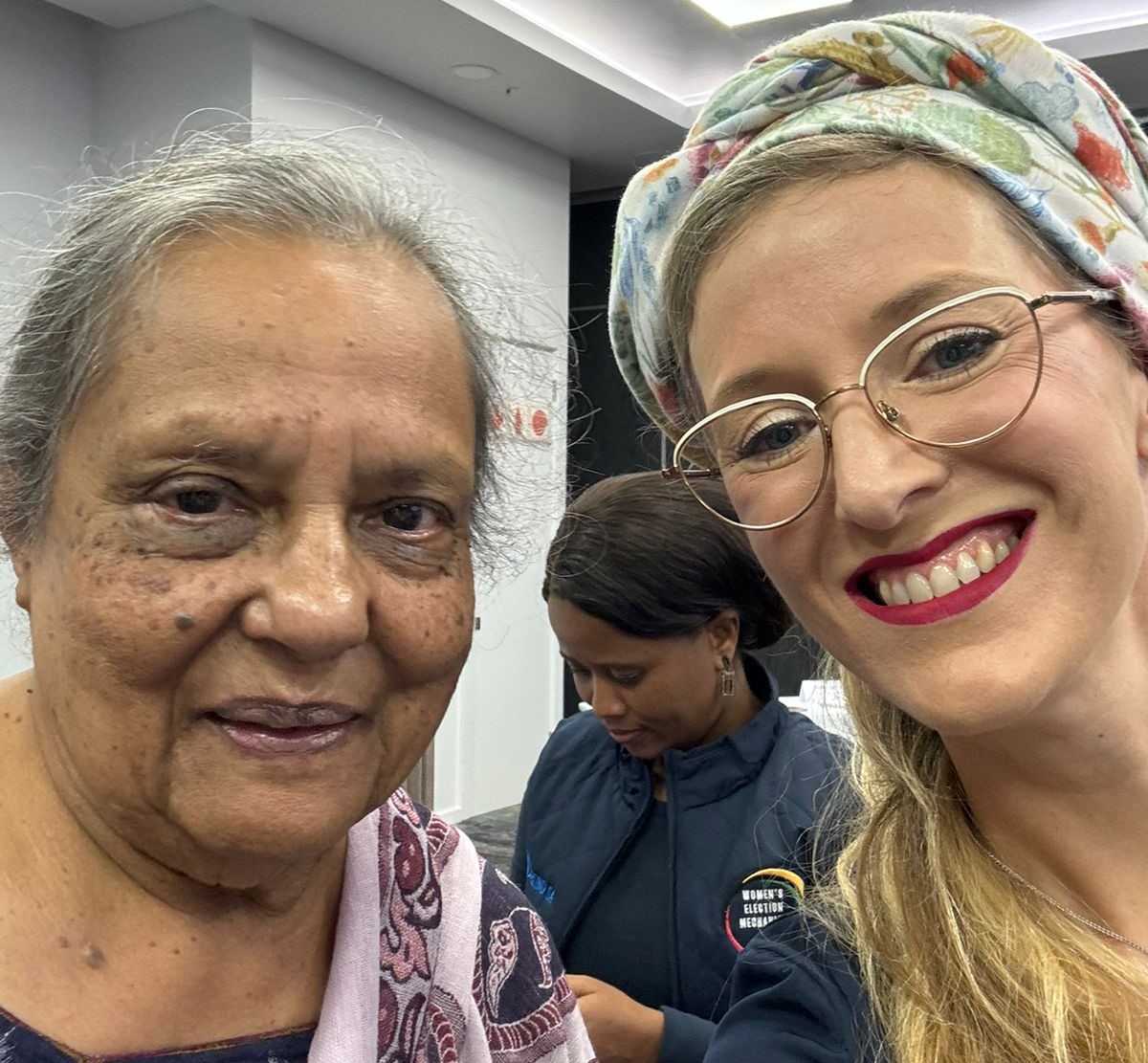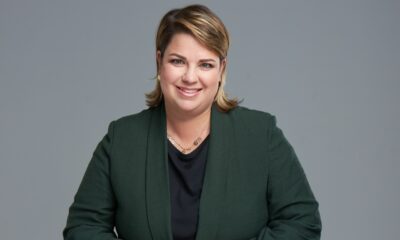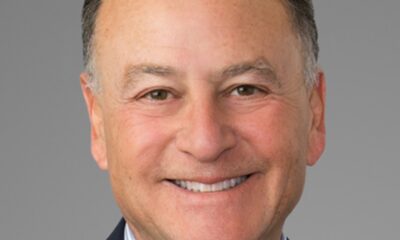
Featured Item

Jewish Board’s observer team makes elections count
Published
1 month agoon
The drive to “turn chutzpah into action” and ensure voter turnout was just one aspect of the South African Jewish Board of Deputies (SAJBD’s) Make Us Count campaign, which empowers voters through various initiatives and oversees the electoral process through an observer team.
“With such a hotly contested South African election and the possibility of confusion with the three ballot papers this year, it was that much more crucial to have independent observers present at the voting stations this year,” says Alana Baranov, the founder of Make Us Count and social and political justice liaison for the Board’s national office.
“Our team worked alongside the Independent Electoral Commission [IEC] as official observers in voting stations in various cities across the country to make sure that everything went through the correct procedures, that the ballot papers were in place, and that there was no harassment or intimidation,” she says. “As our team is accredited with the IEC, we can also observe the vote counting process and ensure that the results are collated correctly.”
In place since the 2009 national elections, Make Us Count began as an awareness and educational project to involve the Jewish community in the electoral process. Today, the SAJBD works to ensure free and fair elections through its interfaith election observer team. This year, the team was made up of 96 observers, most of them concentrated in stations around Cape Town, Durban, Johannesburg, and Pretoria, with others serving in other outlying areas.
“When we started in 2009, we had a really small group of mainly Jewish people who gave their time to be a part of the day and observed polling stations in Johannesburg only,” says Baranov. “Since then, we’ve observed every national and provincial election in major centres, and proudly grown to become an interfaith group.”
The group not only has members from different religious communities, it includes foreign nationals including refugees and asylum seekers from countries including Zimbabwe, Ethiopia, and the Congo, who, although they cannot vote, are accredited observers.
Though observer teams from different faith-based groups have existed in elections since 1994, the SAJBD team’s inclusivity for more than 10 years sets it apart. “From what I understand, we were the first national interfaith observer team. There aren’t many that bring different religious groups together,” Baranov says.
On election day, each member of the team constantly updates the IEC, with concerns called into the IEC observer hotline. At the end of the day, individual reports are collated into one report and sent to the IEC on behalf of the SAJBD.
This year marks the third election for which Zimbabwean national Dumisani Dube has volunteered as a member of the observer team. Having come to South Africa in 2009 in search of greener pastures, he’s grateful for what the country has given him. “It’s important to observe these elections because South Africa is my host country, and it has helped me a lot,” he says. “The only thing I can do to give back is to be an observer because I cannot vote as I don’t have an identity document. Yet, I want to ensure that my host country has free and fair elections.”
Dube heard about the SAJBD team through his church. The Board provides its team with extensive information on how best to observe elections, and maintains constant communication, he says.
“It’s important for religious institutions to be involved in elections because politics emanates from religion. In this day and age, it’s important to have an interdenominational team of observers because it brings different ideas together,” he says. “When we come together, we’re aiming for the same thing – peace for the nation.”
Dube bemoans the voter apathy he has witnessed among the younger generation. “Most of the time, I’ve seen older women going to cast their votes, unlike young people, who say that they’re not going to vote as things won’t change. Even if the older generation can’t see or walk, they’ll vote for the party of their choice because they know how important it is.”
SAJBD National Director Wendy Kahn says the election process is uplifting and hopeful. “Having lived in a country where voting wasn’t a right for the majority makes it even more special. Every time I walk into an election centre, memories of 27 April 1994 come to mind.
“So, having the opportunity to be part of this process as an election observer, literally watching and monitoring democracy, is a real privilege,” she says. “I’ve been an observer in every election since the SAJBD started its Make Us Count observer team, and I treasure these opportunities. As we watch the doors open in the early morning, we know that the possibilities begin.”
The Make Us Count campaign not only oversees an election observer team, it facilitates voting for expat community members around the world, many of whom were particularly keen to vote this year. As a result of the Board’s advocacy, voting hours in certain major cities were extended to accommodate those who keep Shabbat. Yet, in spite of tireless efforts, the Board didn’t manage to find a solution for Israel-based voters who were unable to make their mark due to the closure of the South African embassy.
The campaign also urged local community members to register, focusing on the younger generation, many of whom voted for the first time this year. “We liaised with schools, shuls, and Jewish community organisations,” says Baranov. And prior to elections, the Board facilitated open debates in Cape Town and Johannesburg, bringing representatives from different political parties to speak to the Jewish community.
These initiatives and having a proudly Jewish but multifaith observer team that includes refugees, “demonstrates that we’re a part of South Africa and its democratic process”, Baranov says. “Our community does so much good in so many different ways and can go often go under the radar, so it’s important to understand what we do on election day.”








